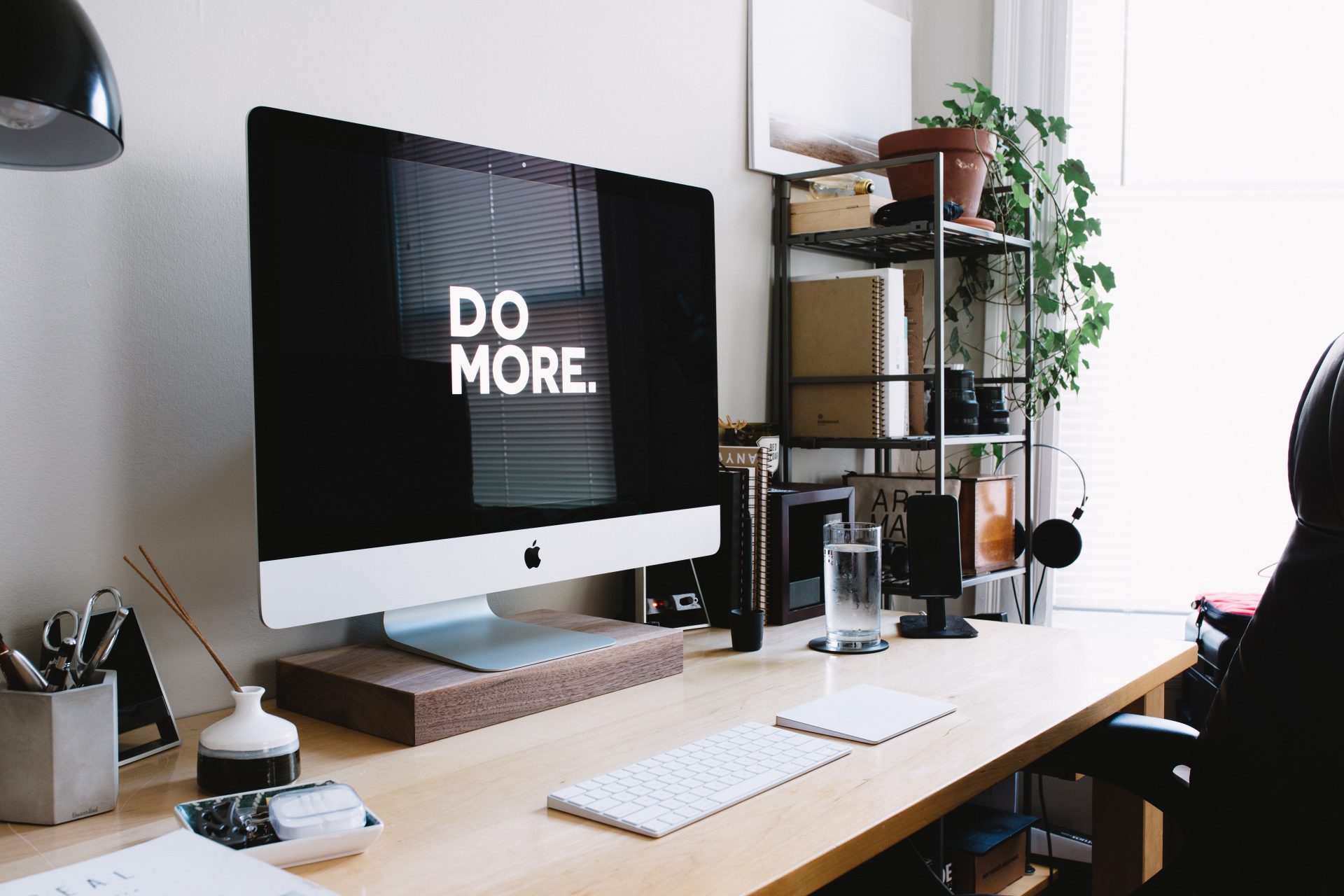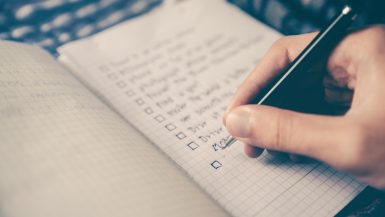1. Learn to Work the Right Way (for you)
Problem: Not leveraging your most productive time (golden hours) to their full potential.
Solution: Understand your Energy Patterns. Everyone has “golden hours.” Those hours are when you are most productive and highly creative.
I am the most productive from 10:00 am till 2:30 pm. My most highly creative projects (like writing, coding or process work) are scheduled for this time.
If you ask me a complex question before 10:00 am, you will get a blank stare. I’m slow to rise, and prefer a softer morning routine. My clients want me at the office at 8:00 am, so I schedule lower brain-activity tasks first: things that are ready to go or don’t require too much up-front work to complete or answering simple emails.
Benefit: Understand yourself, and leverage your best hours will maximize your creative time so you can finish faster.
If you aren’t sure about your golden hours, set reminders on your phone for 8:00 am, 11:00 am, 2:00 pm, and when it pings, quickly jot down how you feel physically, your energy levels, and emotions (sad, upset, pissed off). Keep it simple, one word answers will do. “Journal” for three days, and then analyze the results. This will help you see your energy patterns during your work day.
2. Mindful Efficiency
Problem: Trying to do too many things at once results in a lot of things on the go and not a lot of things completed.
Solution: Do NOT multitask. I repeat, do NOT multitask! Multitasking is a myth.
Studies prove our brains can’t multitask at all. Eating lunch, sending emails, and Facebook chatting seems possible, but your brain doesn’t focus on all these activities at the same time. Instead, multitasking splits the brain. It creates something researchers have called “spotlights”. So all your brain is doing is trying to frantically switch between the activities.
Decide what you are going to focus on and then do only ONE thing during that time. That means that if you are doing research, you are not also checking out Facebook, answering emails, or eating lunch. Choose one thing and stick with it.
Benefit: When your attention is focused you get more done in less time. Mindful efficiency beats multi-tasking any day.
3. Batch Email & Voicemail
Problem: Staying focused when everybody wants your time.
Here’s the kicker though: when we are interrupted from our actual work to respond to emails, texts, and phone calls, it takes a full 15 minutes to get our headspace BACK to the work mode it was in before. How many times a day does this happen to you? No wonder so many of us work late hours and take work home with us!
Solution: Choose 2 or 3 times a day to respond to your emails, texts, and voicemails, and be strict about it. I pick 9:30 am and 3:30 pm. This is my low energy time. I will not waste my most productive, creative time (10:00 am – 2:30 pm) on minor tasks like email.
Pick the times that work best for you. Inform your team that you batch your emails. As a consultant, I always inform my clients and team. I have never received any negative feedback; neither will you, so don’t use that as an excuse. The most important thing is that you set specific times to respond and stick with it.
Benefit: The less interruptions you have, the more focused you will be. You will gain more time in your day, and get more done.
4. Too Much Noise
Problem: I love phone apps, I hate notifications. I do not need to know that Minion Rush has a new feature or that my friend just posted on Facebook. Now that you’ve set times to respond, turn off all interruptions. It is far too tempting to “check” emails and messages if they are constantly in your face.
When you are writing, working or coding, that silly little popup or ping is distracting. You don’t need to know when a new email arrives cause you batch those babies!
Solution: Turn off notifications.
I can already hear you object to this one. This is most likely the hack you will be most resistant to because we LIKE answering emails, texts, and phone calls. Every time we get a notification it feeds our brains’ reward centre when we check it, which is why so many of us are addicted to our phones in the first place. Before you say no outright, give it a shot. You will gain so much more time out of your day!
You will not miss out on anything you really need. It will all be there during your blocked time for reading your messages. Think you are going to miss an emergency text or IM? Train your friends and family, that emergencies involve phone calls, not text messages!
Don’t forget about your laptop or P.C. Turn off Mail, Outlook or Gmail’s email notifications: audible and visual alerts
Benefit: More time for real work, less stress. You can leave work early cause you got everything done!
5. Sprint to Succeed
Problem: Be more productive without frying your brain.
Solution: This is probably one of my favourite productivity hacks of all time. Set a timer for 20 minutes. After that time give yourself a 5 minute break to leave your task. Get a glass of water, go to the washroom or do a walking meditation around your office.
You MUST get up and leave your work, don’t just browse the internet for 5 minutes, this is an important part of the process to give your brain a break. Then set your timer for another 20 minutes and repeat the process two more times. After you’ve done these 3 times take a 30 minute break.
Perhaps 20-minute sprints aren’t your key time interval. Maybe you work best in 15, 25 or 30 minute segments. Determine what your most productive intervals are. Transition your mind from focused mode to diffuse mode for just a few minutes before diving back in for another sprint.
If the task takes longer than 30 minutes, try to split it up into smaller tasks.
Benefit: Our brains fatigue, as you may know (that’s why we get LESS productive the longer we work) so it’s important to give yourself breaks from the task so your brain stays fresh and focused.
Some scientists argue that the brain solves problems in diffuse mode, which could explain why writers are able to progress through their manuscripts more quickly with small breaks. Perhaps the brain works out challenges during the diffuse time, so that when we return to our focused time (in this instance, another 20-minute sprint), the brain can be even more productive than if the break never occurred.
7. Take Breaks
Problem: We don’t take breaks during the day. We think, “I’m too busy”, so we work through lunch. We push through, we hustle. Sometimes, its as simple as losing track of time. Either way, this style of work causes inefficiencies, increases stress and eventually leads to burnout.
Solution: Stop Hustling! Stop being busy, and start being productive by taking breaks. Even if you decide that 20-minute work sprints aren’t for you, then incorporate regular breaks into your work routine.
There are many studies on why you need to take breaks to have your brain work optimally. So why don’t we take them? Some of us feel as though breaks are a luxury, and that we don’t have time for them. In our culture busy has become a status symbol.
Almost like being busy makes us important, or that we are harder working than others.
But if we don’t take breaks we are wasting time, NOT working harder. Our minds will try to create the space we aren’t giving them by becoming less engaged and zoning out.
Benefit: Taking breaks creates space, gives room for fresh perspectives, increases your creativity and problem-solving skills. It recharges your brain. And guess what? You’ll also feel better at the end of the day too!




